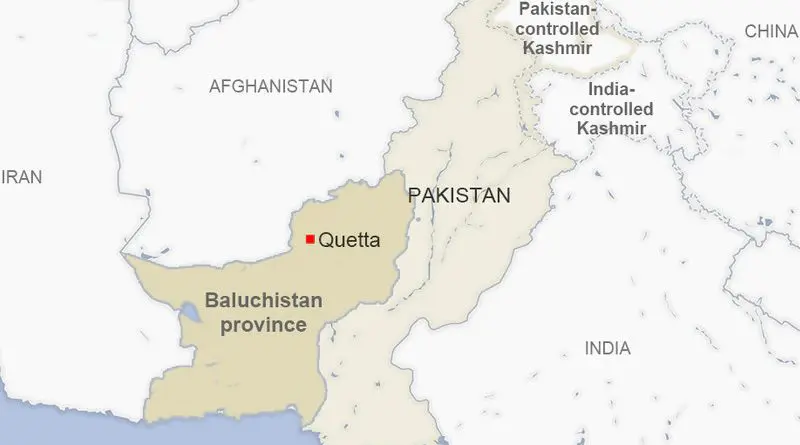Economic Empowerment In Baluchistan: Unlocking Potential For Prosperity – OpEd
Baluchistan, Pakistan’s largest province by land area, is endowed with abundant natural resources, diverse cultural heritage, and strategic geographical significance. Yet, despite its rich potential, Baluchistan remains one of the most underdeveloped regions in Pakistan, facing a myriad of socio-economic challenges that have hindered its growth and prosperity. Economic empowerment in Baluchistan is not just a matter of development; it’s a matter of unlocking the province’s vast potential and ensuring a brighter future for its people. This article delves into the opportunities and challenges of economic empowerment in Baluchistan and explores strategies to unlock its economic potential.
The Economic Landscape of Baluchistan
Baluchistan is rich in natural resources, including natural gas, coal, copper, and gold, among others. Its strategic location makes it a gateway to trade routes connecting Pakistan to Central Asia and the Middle East. Despite these advantages, the province lags behind other regions in terms of economic development indicators.
High levels of poverty, unemployment, and illiteracy are persistent challenges that have hindered economic growth and prosperity in Baluchistan. Moreover, inadequate infrastructure, limited access to quality education and healthcare, and security concerns have further exacerbated these challenges, creating a complex web of socio-economic issues that require comprehensive and targeted interventions.
Harnessing Natural Resources for Sustainable Development
One of the key opportunities for economic empowerment in Baluchistan lies in harnessing its abundant natural resources for sustainable development. Effective management and utilization of natural resources can generate significant revenues, create employment opportunities, and stimulate economic growth.
However, the exploitation of natural resources must be carried out in a sustainable and responsible manner to ensure long-term benefits for the people of Baluchistan. This requires transparent governance, strong regulatory frameworks, and community engagement to ensure that the benefits of resource extraction are shared equitably and contribute to the overall development of the province.
Infrastructure Development and Connectivity
Infrastructure development is another crucial pillar for economic empowerment in Baluchistan. Investments in infrastructure, such as roads, ports, and energy infrastructure, can unlock new economic opportunities, facilitate trade and commerce, and improve access to essential services.
Moreover, improving connectivity within Baluchistan and with other regions of Pakistan and neighboring countries can enhance the province’s integration into regional and global markets, attracting investment, and stimulating economic growth. Investments in infrastructure must be accompanied by capacity building initiatives to ensure that local communities can benefit from the economic opportunities generated.
Promoting Entrepreneurship and Small-scale Industries
Entrepreneurship and small-scale industries play a pivotal role in driving economic growth, creating jobs, and fostering innovation. In Baluchistan, there is immense potential to promote entrepreneurship and support small-scale industries, particularly in sectors such as agriculture, handicrafts, and tourism.
Policymakers can foster a conducive environment for entrepreneurship by providing access to finance, offering training and skills development programs, and simplifying regulatory frameworks. Moreover, promoting local handicrafts and tourism can not only generate employment opportunities but also showcase the rich cultural heritage of Baluchistan and attract tourists from across Pakistan and abroad.
Investing in Human Capital
Investing in human capital is crucial for sustainable economic development and empowerment in Baluchistan. Access to quality education, healthcare, and skills development opportunities can improve the well-being of the population, enhance productivity, and contribute to long-term economic growth.
Moreover, addressing gender disparities in education and employment can unlock the potential of half of the province’s population, fostering inclusive growth and empowerment. Investments in human capital must be complemented by targeted social protection programs to support the most vulnerable segments of society and ensure that the benefits of economic growth are shared equitably.
In conclusion, economic empowerment in Baluchistan is a multifaceted challenge that requires a holistic and integrated approach. By harnessing its abundant natural resources responsibly, investing in infrastructure and connectivity, promoting entrepreneurship and small-scale industries, and investing in human capital, policymakers can unlock the province’s vast potential and pave the way for sustainable economic growth and prosperity.
Moreover, fostering transparent governance, strengthening institutions, and engaging with local communities are crucial for ensuring that economic empowerment initiatives are inclusive, equitable, and sustainable. The time for economic empowerment in Baluchistan is now. Bold and visionary policies that address the root causes of economic challenges and leverage the province’s strengths and potential can unlock new avenues for growth, create new opportunities for prosperity, and build a resilient and inclusive economy for all Baluchistanis.

